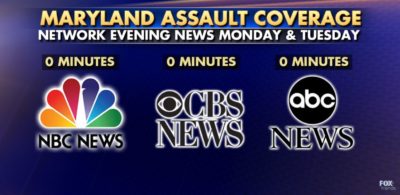The Impact Of Bill O'Reilly On Modern Media

Bill O'Reilly has been a polarizing figure in the media landscape for decades. As a television host and political commentator, his influence extends well beyond his time on air. O'Reilly has shaped public opinion and altered how political discourse is conducted in America. This article explores Bill O'Reilly's media influence, examining his career, audience reception, controversies, and lasting legacy.

Introduction to Bill O'Reilly
Bill O'Reilly first made his mark in journalism as a television host, most notably on "The O'Reilly Factor." His assertive style and unique approach to political commentary set him apart in the crowded field of cable news. O'Reilly's influence on media is undeniable, as he brought a new level of engagement to political discussions, attracting millions of viewers and sparking intense debates.
O'Reilly's Career Overview
Born on September 10, 1949, in New York City, Bill O'Reilly's journey to fame began in journalism. He graduated from Marist College and earned a master's degree from Boston University. His career took off when he joined the CBS network and later transitioned to ABC News. However, it was his role as the host of "The O'Reilly Factor," which premiered in 1996 on Fox News, that catapulted him to stardom.
During his time on Fox, O'Reilly tackled controversial topics and interviewed high-profile guests, effectively blending news with opinion. His ability to engage viewers contributed to the show's success, making it one of the most-watched programs in cable news history.

Media Influence and Public Perception
O'Reilly's impact on public opinion is significant. His show often addressed contentious issues, resonating with a conservative audience that felt underrepresented in mainstream media. According to Nielsen Ratings, "The O'Reilly Factor" consistently ranked among the top cable news programs, with millions tuning in nightly.
The Pew Research Center found that O'Reilly's audience demographics skewed older and more conservative, reflecting his influence on that segment of the population. His provocative style and willingness to challenge guests and callers fostered a loyal following. Many viewers found his straightforward approach refreshing, while others criticized it as overly aggressive.
Controversies and Criticisms
O'Reilly has faced numerous controversies throughout his career. Allegations of sexual harassment and inappropriate behavior led to significant backlash and ultimately his departure from Fox News in 2017. Critics argue that these controversies overshadowed his contributions to political commentary, raising questions about media ethics.

His methods have also drawn criticism. O'Reilly often employed a confrontational style, which some argue undermined constructive dialogue. For example, during a heated interview with President Obama, O'Reilly's aggressive questioning style drew both praise for its boldness and condemnation for its lack of civility.
O'Reilly's Legacy and Impact
Bill O'Reilly's legacy in journalism is complex. He has undoubtedly influenced how political commentary is presented on television. His unique blend of entertainment and news has inspired a new generation of media figures, blending commentary with more traditional reporting.
Comparatively, figures like Rachel Maddow and Sean Hannity have similarly shaped political discourse, but O'Reilly's approach remains distinct. His ability to connect with an audience and provoke thought has left a lasting imprint on the media landscape.
Conclusion
In summary, Bill O'Reilly's media influence is profound and multifaceted. His career has reshaped political discourse and public engagement in ways that continue to resonate today. While controversies may cloud his legacy, O'Reilly's impact on modern media remains significant. For those interested in understanding the evolution of political commentary, examining O'Reilly's role is essential. Engaging with his work invites deeper discussions about media ethics and the responsibilities of commentators in shaping public opinion.